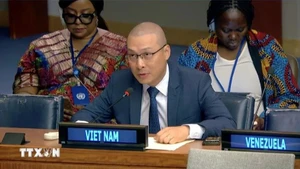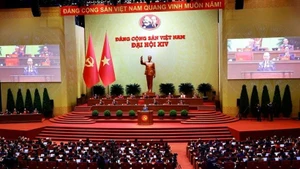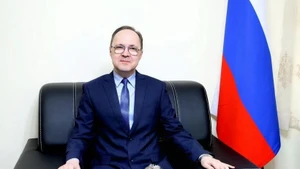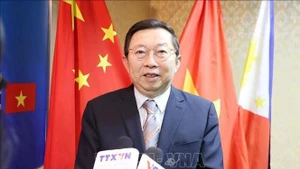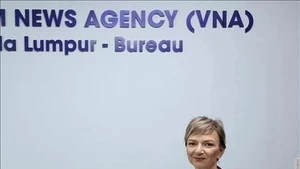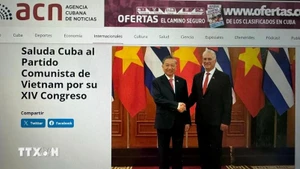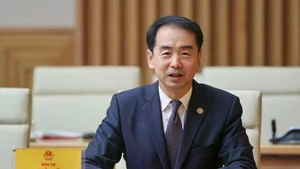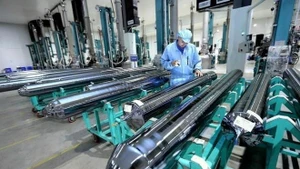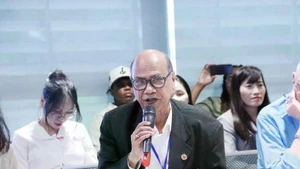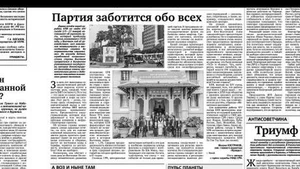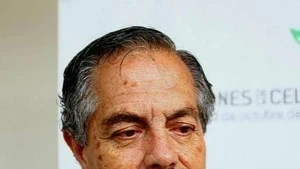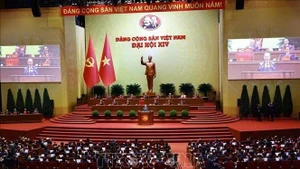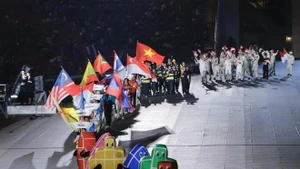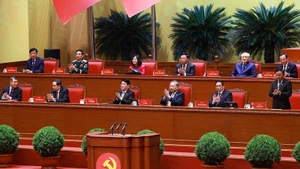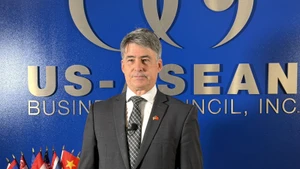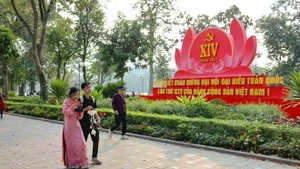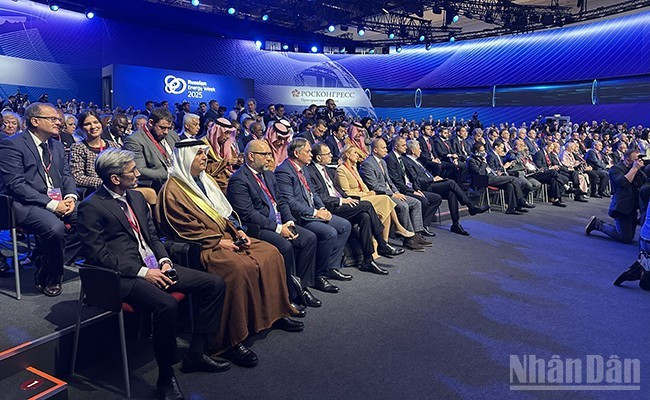
The Vietnamese official, who joined the event at the invitation of the Russian government, underscored the crucial role of energy in safeguarding national energy security and promoting sustainable socio-economic development amid growing challenges from climate change and the depletion of natural resources.
He stressed that the global energy sector must improve the efficiency of resource use, promote research and application of science and technology, reduce emissions in exploitation, processing, and use of traditional energy sources, and develop green, clean and high-efficiency energy sources.
Deputy PM Son thanked the Russian government for inviting Viet Nam to this important and meaningful event, where leaders of countries and representatives from businesses around the world meet to discuss urgent trends in the global energy sector.
He revealed that Viet Nam’s goal through 2030, with a vision toward 2045, is to ensure firm national energy security; provide sufficient, stable, and high-quality energy with low emissions to drive socio-economic development; safeguard national defence and security; improve living standards for people; and protect the ecological environment.
He addressed delegates’ questions regarding the Vietnamese Government’s plans to expand infrastructure and strengthen technical capacity for receiving liquefied natural gas (LNG), noting that the development and expansion of LNG terminal infrastructure have been carefully planned and aligned with the implementation schedule of gas-fired power projects.
Between 10 and 14 LNG terminal clusters will be developed to serve corresponding gas-fired power plants across all regions of Viet Nam, Son said, adding that investors in LNG terminals and gas-to-power projects are actively implementing their plans, aiming to put the plants into commercial operation between 2028 and 2030.
Viet Nam welcomes investors’ cooperation and experience sharing with Russian and other international companies to enhance their capacity in developing and operating LNG terminal infrastructure.
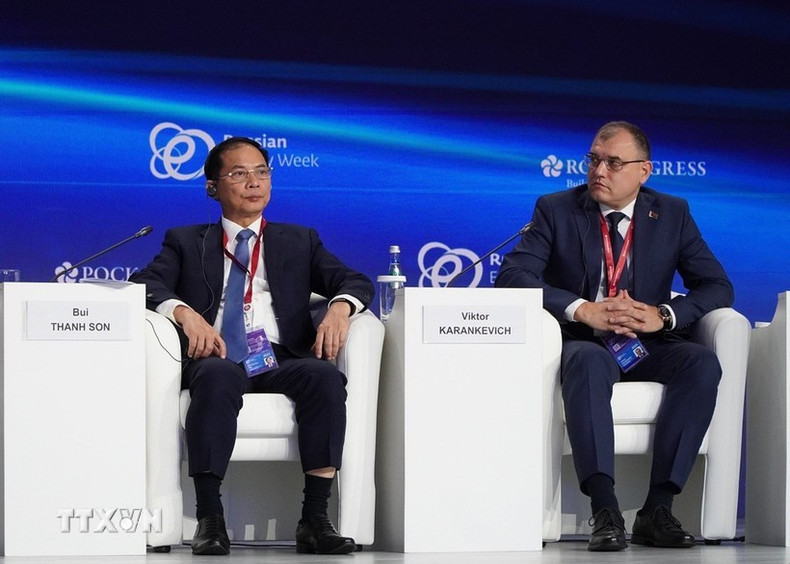
At the forum, delegates shared the view that the global energy sector is facing major challenges due to complex geopolitical tensions, which have disrupted supply chains and caused instability in both supply and demand markets. However, with the world’s population projected to reach 10 billion by 2050 and the global economy continuing to expand, energy demand is expected to keep rising.
They said that diversifying energy sources and markets, while ensuring a sustainable, stable, and competitively priced supply, is the most effective way to safeguard national interests and protect the global market from pressures of protectionism, trade restrictions, and tariff barriers.
Initiated in 2016, the Russian Energy Week International Forum serves as a platform to discuss key global fuel and energy trends, identify economic and technological solutions, and strengthen international cooperation to address challenges, mitigate risks, and promote efficient and sustainable energy development.
This year’s forum attracts nearly 5,000 delegates from 80 countries and territories, featuring more than 70 diverse events.
Deputy PM Son and the Vietnamese delegation are scheduled to engage in bilateral meetings on October 16 as part of their working trip to Russia.
